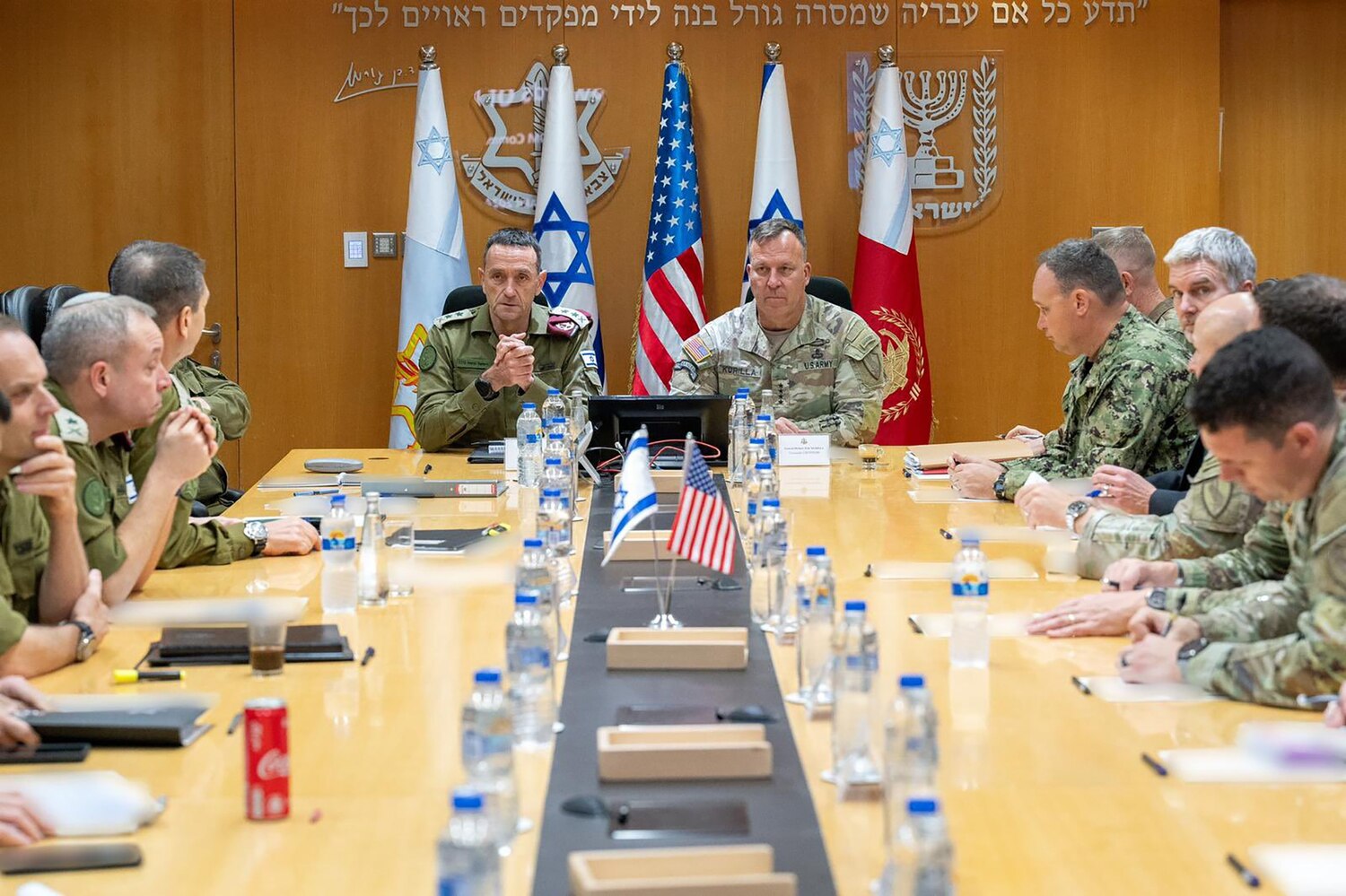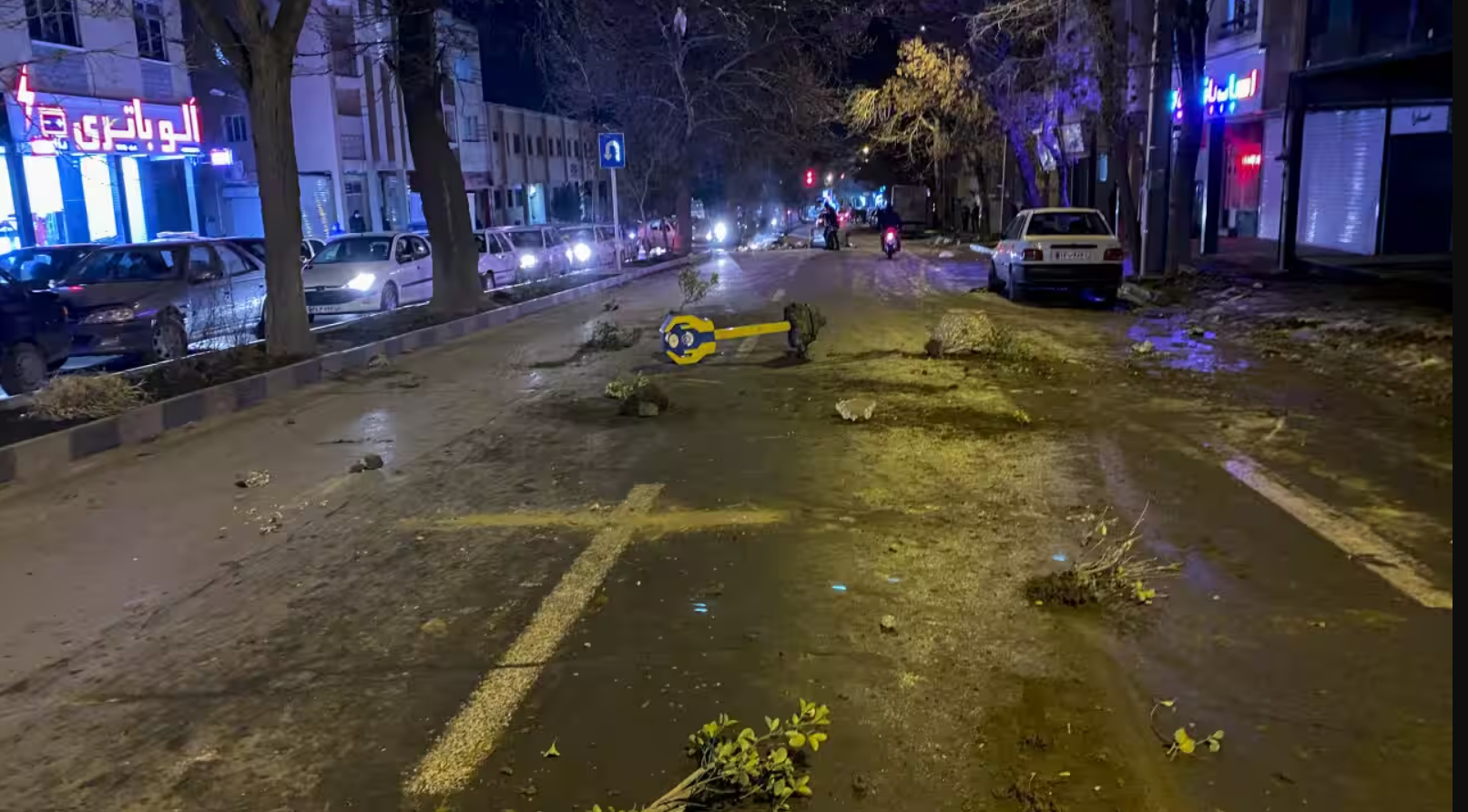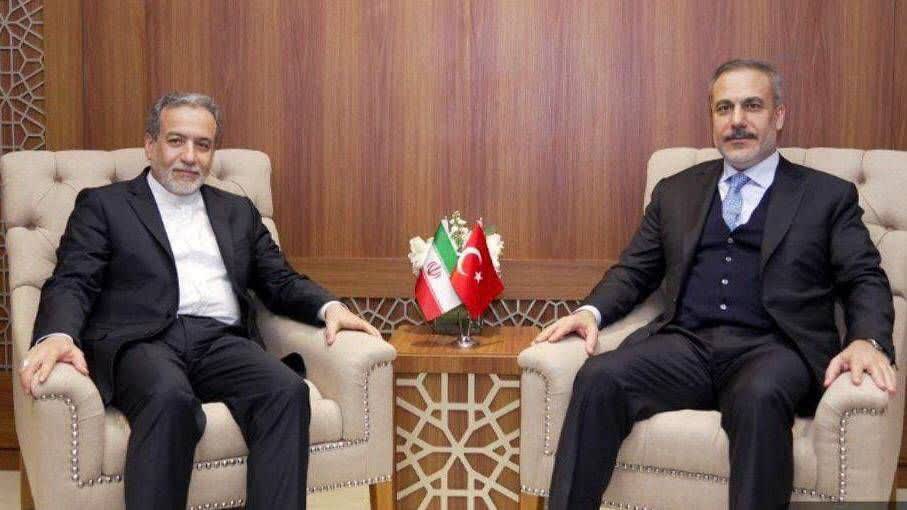Carlos Paz, a Spanish researcher and writer in the field of international relations, in an interview with Iran View 24, considered the tensions between Iran and Israel to be beyond a mere regional dispute, describing them as part of a broader geopolitical rivalry between the “U.S.-centered global order” and the forces opposing it. Criticizing Western media narratives and the role of the United States, he emphasized Iran’s right to legitimate defense and the necessity of forming a more balanced perspective on Tehran’s role in the Middle East.
Elaheh Tahmasebi – Iran View 24
“Iran is not the real threat; the true source of instability in the region is Israel and its unconditional supporter, the United States.”
This is what Spanish researcher Carlos Paz tells Iran View 24 in a candid conversation — one that moves from a critique of Western media narratives to a redefinition of Iran’s right to self-defense, and reveals the underlying realities of Tehran–Tel Aviv tensions.
The following is the text of Iran View 24’s interview with this Spanish researcher.

To what extent can the ongoing tensions between Iran and Israel be assessed not merely as a regional confrontation, but as part of a broader geopolitical rivalry between the “U.S.-centered global order” and the forces opposing it?
It is an honor to present this interview and questionnaire to Iran View 24. I will address the questions one by one. The first concerns the tensions between Iran and Israel. For Israel, Iran is a major piece that must be defeated as part of a much larger plan to restructure the entire Middle East. Israel has been obsessed with Iran for decades, framing its nuclear program as a threat and using this issue as a pretext to destroy Iran, which it considers its greatest enemy in the region. Iran is a country that does not recognize Israel, considers it an illegitimate state and largely a promoter of terrorism, and currently accuses it of carrying out ethnic cleansing against Palestine. Therefore, all of this is entirely unacceptable to Israel, the United States, and the West.
All the tensions between Israel and Iran have been instigated by Israel through the United States, via economic sanctions going back many years, and even through waging wars against Iran, such as the Sacred Defense (1980–1988) — what we in the West know as the Iran–Iraq War. Simply put, this entire period we have witnessed — the recent 12-day war and what we will see in the future — is part of Israel’s determination to destabilize and ultimately destroy Iran’s very existence.
Are Western media narratives about Iran and the recent conflicts with Israel realistic and impartial? What role do international media play in reproducing certain images of Iran?
Regarding dominant narratives, you ask me about the role of the media. In the West, the media act entirely with bias and partiality, with vested interests, and in many cases with a fantastical imagination about Iran. Every piece of news about Iran in the West is negative; we will never find any positive news. Of course, we are constantly confronted with stories about attacks on minorities, oppression of women, the nuclear threat, and even some completely delusional claims, such as the persecution of Christians, which clearly does not exist. But it does not matter — all these anti-Iranian narratives serve two purposes: on one hand, to destabilize Iran and amplify internal divisions, and on the other, to disrupt possible cooperation between other countries and Iran.
More importantly, in my view, all these media aim to create a very specific image of Iran that is simply not real. They want to prepare the minds of Western citizens for the possibility of a war with Iran and present Iran as a threat that is not only regional, but even global.
How should the role of the United States in the recurring tensions between Iran and Israel be analyzed? Can this confrontation be seen as a reflection of Washington’s interventionist policies and its preferred security order?
You ask me about the role of the United States. Throughout modern history and intra–Middle Eastern relations, particularly regarding Israel and its efforts to destabilize Iran, the U.S. has played a fundamental and essential role. One could say that all U.S. interests in the region boil down to defending the interests of the Zionist regime of Israel. Israel could not do any of the things it does without U.S. support. But this problem is not unique to Israel’s relations with Iran — Israel has had conflicts with almost all its neighbors: Egypt, Jordan, especially Lebanon and Syria. After destabilizing much of the Middle East, Israel’s obsession, as I have said, is to destabilize and attempt to destroy the structures of the Iranian state.
It is impossible to explain this without mentioning what the U.S. does: Israel systematically counts on its support in everything it does under the pretext of self-defense. It must be said that all the principles the U.S. and the West declare about international law, international relations, democracy, and the right to self-defense are principles they do not actually believe in.
In a situation where the United States and its allies use the concept of “legitimate defense” to justify preemptive attacks, how should the notion of legitimacy in the defensive actions of non-Western countries like Iran be redefined?
All these concepts are applied depending on who takes the action. If a country allied with the West attacks another, there is no reference to the right of self-defense or any other such concept. If the West maintains relations with countries where there is no trace of democracy, nothing happens — because they are allies, such as Saudi Arabia or many others in the region.
However, if countries targeted by the West, labeled as part of an imaginary “axis of evil,” exercise legitimate self-defense, we will not accept that they are defending themselves. We saw this in the 12-day war, when Israel attacked Iran. After numerous prior provocations — targeted assassinations, bombing of Iranian diplomatic facilities — Iran refrained from responding, but the situation became unbearable and Iran was forced to respond. At that point, Iran’s right to self-defense was denied through the media and much of the so-called international community, in an international relations environment that is heavily degraded.
Of course, the real holder of the right to self-defense is Palestine, whose land has been stolen and which has been under aggression since 1948. But that right is constantly denied to the Palestinian people. We thus see that the issue of self-defense, like democracy or many other matters, is granted or denied depending on the interests the West has with a particular country.
In the event of a broader war between Iran and Israel, who do you believe would be the main actors responsible for igniting such a conflict? Western media usually portray Iran as the initiator — is this realistic?
You ask me about a potential war between Iran and Israel, or its escalation. I believe that, in fact, we are already experiencing a war between Israel and Iran. We are now in weeks of deadlock, a pause, a respite — but without a doubt, this autumn Israel will again attempt to destabilize and attack Iran. We shall see how they do this, certainly by creating internal division and discord. Again, here we must speak of the U.S. role: without U.S. support, Israel is incapable of attacking Iran.
In the 12-day war, we saw a serious strategic miscalculation by Israel regarding Iran. They somehow believed that Iran had the same vulnerabilities as other countries that have fallen on the Middle East chessboard, but they were faced with the reality that Iran is something else. And of course, they will again tell us that by developing its nuclear program, Iran is a danger to the region and even the world. Needless to say, Iran, like any other country in the world, has the right to pursue a nuclear program for civilian purposes — but this right has been denied to Iran.
We will see an intense anti-Iranian media campaign, supported and driven by Israel and the United States. But in reality, Iran is dangerous neither on a global scale nor even regionally. Iran has not attacked anyone for over 200 years, and it cannot be said that it is a warlike nation or a threat to anyone. The intent to make us believe Iran is a regional or global threat is central to the dominant narratives that control Western media.
How can a more balanced view of Iran’s role in the Middle East be developed in the literature of international relations, without falling into the trap of dominant Western media narratives?
In this sixth question, you ask me about the future of international relations and what should be done to break away from the dominant narratives we have discussed. In essence, Europe — Spain, which is part of the Western bloc — must exercise sovereignty and know how to decide differently about the future and international reality. Currently, the West, Spain, and Europe limit themselves to systematically following Western decisions and analyses, mainly those from the United States.
Thus, we end up supporting all the actions that the U.S. — and in the region, Israel — deem appropriate. We must abandon this systematic following of these powerful Western forces and instead analyze reality. In doing so, we will realize that Iran is a regional power, and for many European countries — for all of them — establishing fully normal relations with Iran would be highly beneficial.
From one perspective, it would be worthwhile simply to recognize that Iran is a key country in combating terrorism, drug trafficking, and many other issues that harm the West. Therefore, we must normalize and strengthen these relations. At present, what we in the West are doing — by submitting ourselves to American dictates — is creating ties with countries that actively promote drug trafficking or foster terrorism. The actions of the West, Europe, and Spain are suicidal, because we are supporting countries that, in some way, harm us — sometimes irreparably.
In your view, are Israel’s aggressive policies in the region and the unconditional support of the United States one of the reasons for the continued instability and spread of conflicts in the Middle East?
Regarding the seventh and final question, I will go slightly beyond the present moment. The United States and Israel are the main destabilizing factors in the region. Without Israel’s existence and without U.S. support for the Zionist regime, many of the problems in the region would not exist. The wars we have seen and lived through simultaneously would not have happened. The region would be completely stable, or at least much more stable than it is today.
However, this part of the world has been designed and planned to live in a constant state of instability — and the media portray it as unstable because of its people, customs, and even the majority religion. This is a completely delusional view, but one that works. Through simplification, lies, and media distortion, this image has been successfully implanted in the Western mind. The region has been designed and decided upon to remain unstable, with the aim of destroying countries capable of controlling their own destiny. I think of Bashar al-Assad’s Syria and Gaddafi’s Libya — both systematically destroyed because they possessed sovereignty, could determine their future, and controlled their means of production and resources.
From the Western perspective, this is unacceptable. Decisions have been made to destroy all countries that hold their future in their own hands and make independent decisions. Iran is no exception — it is an independent country that determines its own future, has resources that prevent foreign multinational corporations from exploiting them for profit. From the West’s point of view, this is unacceptable. Combined with the West’s view of Israel, this has led to the belief that Iran is the major threat in the region. The real great danger of instability in the region is Israel and all those influenced by its policies — above all, the United States.
I hope my answers to your questions have been to your satisfaction. From here, I send you my warmest regards. Thank you very much.







